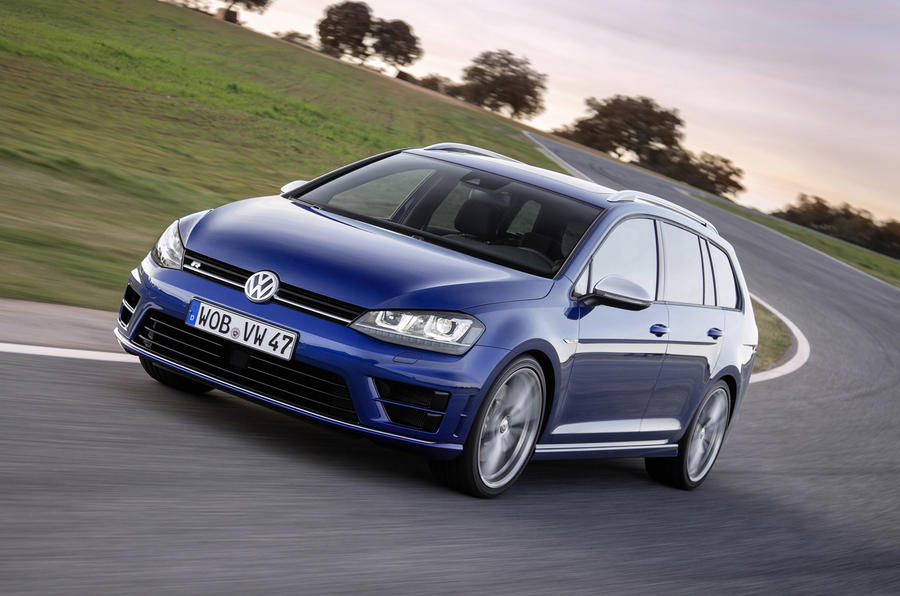Despite having gained 32cm in length and 79kg in weight over the hatch in the process of upping boot capacity from 380 to 605 litres, the Golf R estate remains a total riot to drive.
It gets all the same tricks as the hatchback, including the Haldex four-wheel drive system that can send everything to either axle, and also the XDS+ torque vectoring system, which brakes both inside wheels when it's deemed necessary in order to help battle inevitable understeer.
It does a damn good job of it, too. Stick all the adaptive systems - which included the optional £815 dampers on our car - into all-out Race mode, and the estate turns in to corners with the sort of veracious precision that comes close to something of which Renaultsport would be proud, and sticks with dogged determination to your chosen line.
Even better, if you do find the R bleeding wide through a corner, the throttle is communicative enough and the back-end mobile enough that you can easily provoke some lift-off oversteer to get the nose tucked back in (or frankly, just to have a bit of fun if you want).
It's a joyous blend of forgiving playfulness that works on road or track, and which avoids the slightly dead-eyed, stoic immovability of some less entertaining rivals - including the Seat Leon Cupra ST.
Generally, the fact that the Golf R has grown an estate boot really doesn't seem to have made much of difference. There's even an element of enjoyable incongruousness to seeing a Golf estate - even one with quad exhausts and evidently meaningful styling - pull a four-wheel drift through the chicane at Ascari before hooning up the track with a wonderfully rude exhaust note on the upshift. I imagine it's how I'd feel if I saw my nan stick two fingers up at someone.
For all that handling vivaciousness, the Golf R estate is still as easy to drive and live with as any Golf. Despite having slightly stiffer springs at the rear to account for the extra weight (the only alteration to the suspension over the R hatch), the ride on our adaptive-sprung car felt very similar to that of the hatch.
You do get slightly more unforgiving compression and bump-absorption over potholes and the like than you would in a softer version, but it's never tiresome or uncomfortable, and there's unlikely ever to be a moment when you wish you hadn't gone for the R in favour of a more 'everyday' model. You want to get home without fuss? You can do just that.
The only thing that might frustrate some buyers is the lack of a manual gearbox option. The six-speed DSG dual-clutch automatic gearbox is great in general and mostly spot-on with its responses if you use the paddles, but it can sometimes be a bit slow to respond - especially if you've got the stop-start in action.























Join the debate
Add your comment
I'd like to see
Where does 4WD go?
Tremendous. To me it looks a